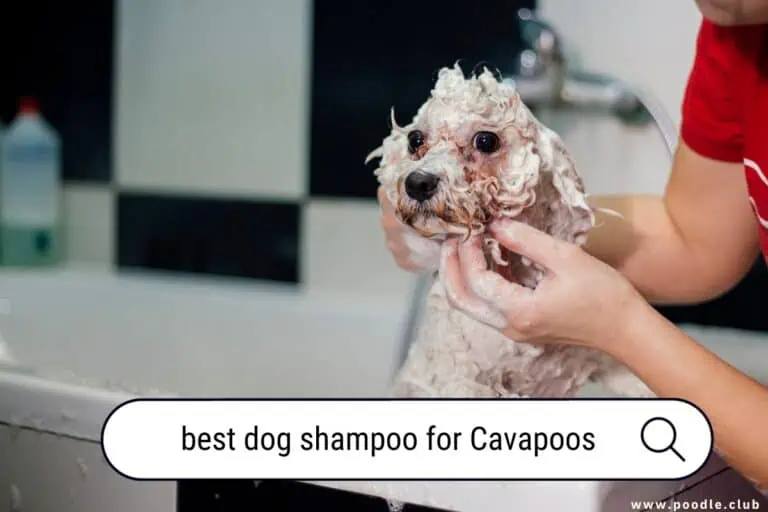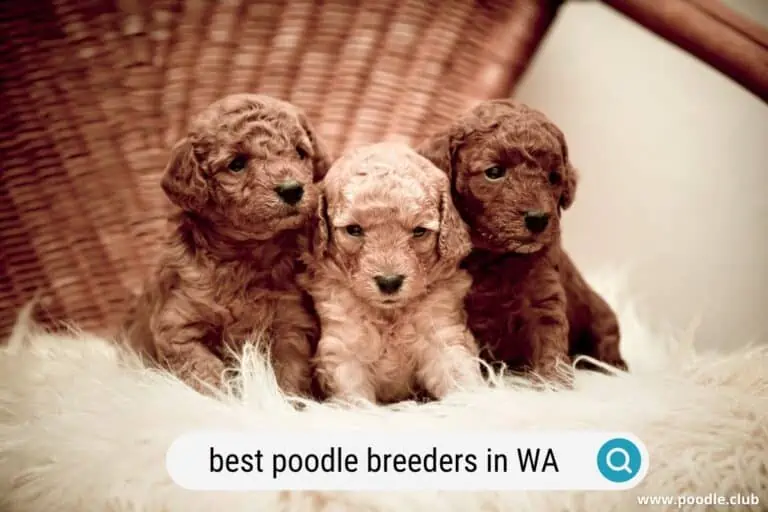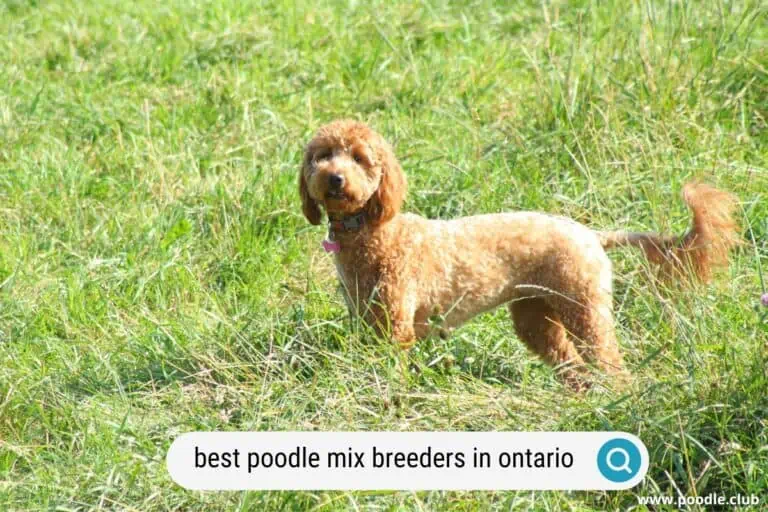Toy vs Miniature Poodle [Comparison + Photos]
While originally bred for hunting, Poodles are “true aristocrats,” according to their loving owners. They are wonderfully intelligent, fast learners, and good family dogs. The clubs recognizes three sizes of Poodles: Standard, Miniature, and Toy.
While these three types of Poodle are pretty different in size, they’re quite similar in terms of characteristics.

Here, we’ll be comparing the Toy and Miniature Poodle. So, let’s dive in and see what similarities and differences these two sizes have.
Miniature and Toy Poodles Basics
Generally, Poodles are great family dogs and do not shed very much, so they are considered hypoallergenic. However, doctors recommend spending time with a dog to see if allergies are triggered, as hypoallergenic does not necessarily mean that allergens are not present.
The difference between a Miniature Poodle and a Toy Poodle is primarily found in their height and weight.
Miniature Poodles are typically ten to 15 inches tall or less at the shoulder and weigh ten to 15 pounds, and their life expectancy is ten to 18 years. Toy Poodles are about ten inches high or less and weigh about four to six pounds, and have a life expectancy of ten to 18 years.
The Size
Miniature Poodles were initially bred from Standard Poodles. And Toy Poodles were first bred from Miniatures in the United States as smaller dogs perfect for crowded urban environments where space is at a premium.
PuppySpot is a reputable dog marketplace where you can browse and find compatible puppies right from the comfort of your home. They have placed over 200,000 puppies into homes in the US!
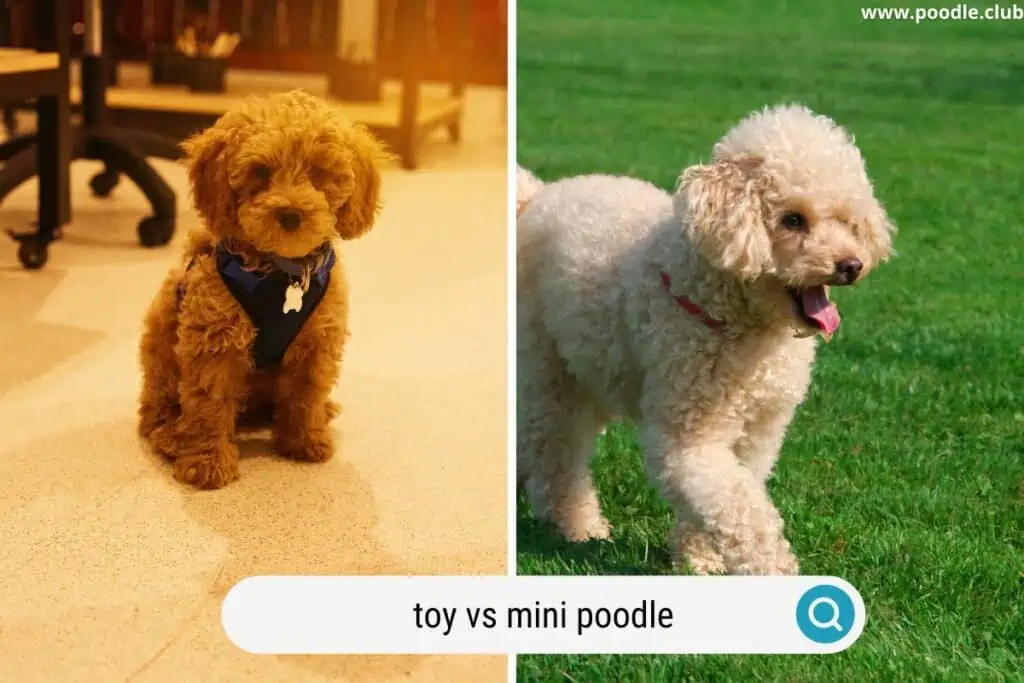
One size smaller than the Toy is the Teacup Poodle, which the clubs does not recognize since it is not considered purebred. If dogs are bred to be too small, health problems can occur. Toys and Teacups can also be challenging to house train because of their smaller bladders.
The Cost
Toy Poodles tend to be more expensive than Miniatures since their litters are smaller, meaning Toy Poodle puppies are more of a precious commodity than Miniatures.
Always make sure you are working with a reputable breeder if you plan on purchasing a Poodle. The AKC has lists of breeders, and the Good Dog website has vetted breeders.
If you’re planning on rescuing, then Miniature and Toy Poodles are generally around the same price.
Professional vs. At-Home Grooming
Professional grooming can be more expensive for Miniature than for Toy Poodles. This is due to the size difference and time it takes to groom a Toy vs. a Miniature Poodle.

It is a good idea to ask a breeder or shelter how comfortable or familiar the dog is with grooming. Whether the dog is groomed professionally or at home, it is important to groom regularly so the Poodle can also become accustomed to the experience. This is especially important in the first year you have the dog.
Health
Both Miniature and Toy Poodles usually live very healthy lives. Responsible breeders will test for a variety of common disorders. For both Miniature Poodles and Toy Poodles, these disorders can include:
- Autoimmune disorders, including Addison’s disease
- Sebaceous adenitis, an inflammatory disease affecting hair follicles
- Hip dysplasia
- Diabetes
- Hepatitis
- Hypothyroidism
- Atrial septal defect (of the heart)
- Von Willebrand’s disease, a bleeding disorder
- Eye illnesses
- Epilepsy
The two sizes do differ slightly in their tendencies toward specific health issues.
Miniature Poodles’ health issues can include:
- Allergies
- Cataracts
Toy Poodles tend to be more inclined to health concerns than Miniature Poodles. Their health issues can include:
- Bones that are more easily broken than a Miniature Poodle
- Ear infections
- Eye disorders
- Heart disorders
- Skin conditions
- Bladder issues
Tests Advised
- Hip evaluation
- Ophthalmologist evaluation
- PRA Optigen DNA test
- Patella evaluation
Miniature Poodle and Toy Poodle Differences
The differences between Miniature Poodles and Toy Poodles are primarily their size and height, as noted above. But, of course, breeding and training will play a role, too. Here are a few of the other subtle differences between the two.
Miniature Poodles
Here are some of the basic needs associated with the Miniature Poodle:
Exercise
Poodles, in general, love to exercise. They love to go for walks and runs with their humans. They also love to swim and play fetch.
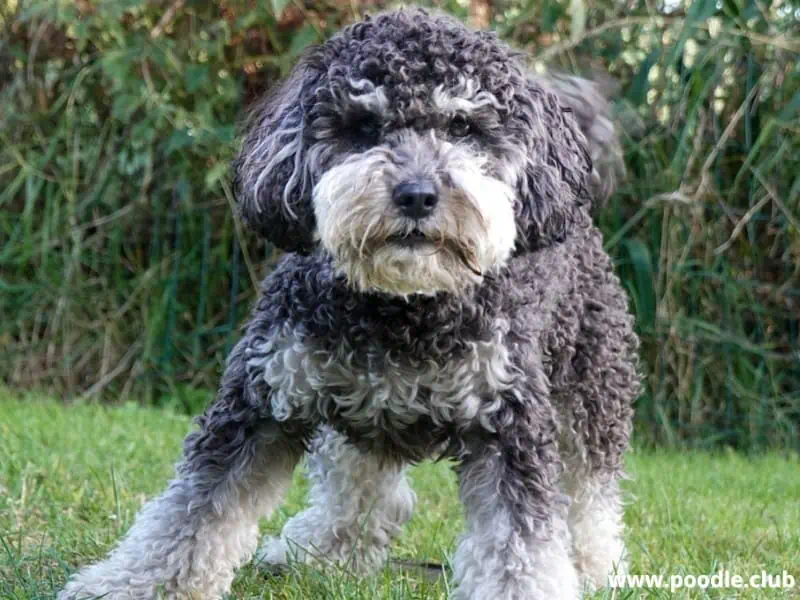
Miniature Poodles need a couple of walks a day and at least one period of rambunctious playtime every day.
They may need more exercise than Toy Poodles. And for runners, the Miniature Poodle, which will not tire as fast, will be the better choice.
Training
Poodles are easily trained. They are both obedient and intelligent. They love people, and if training is consistent and enjoyable for them, they love to please the trainer.

They love reward-based training. Poodles especially enjoy training with food and love learning new games and tricks.
Some have said the Miniature Poodle’s temperament is calmer than a Toy Poodle’s temperament, so they may be easier to train. But, of course, each dog is different, so this will depend on the individual animal’s personality.
Toy Poodles
Here are some of the basic needs associated with the Toy Poodle:
Exercise
Toy Poodles thrive with a walk a day coupled with a few spirited sessions of play daily. They especially love to fetch.
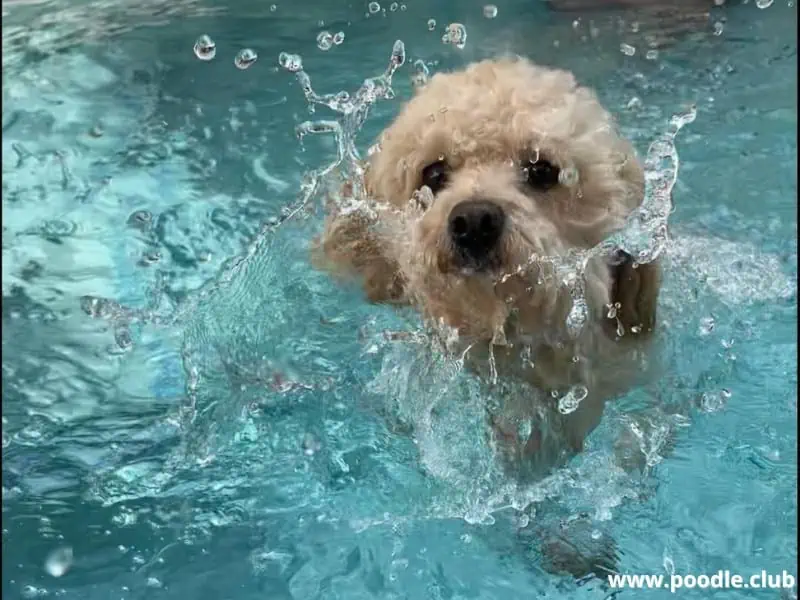
Training
Toy Poodles love learning new things. They are known to be unusually intelligent. Toy Poodles do exceptionally well when the training is done with rewards.
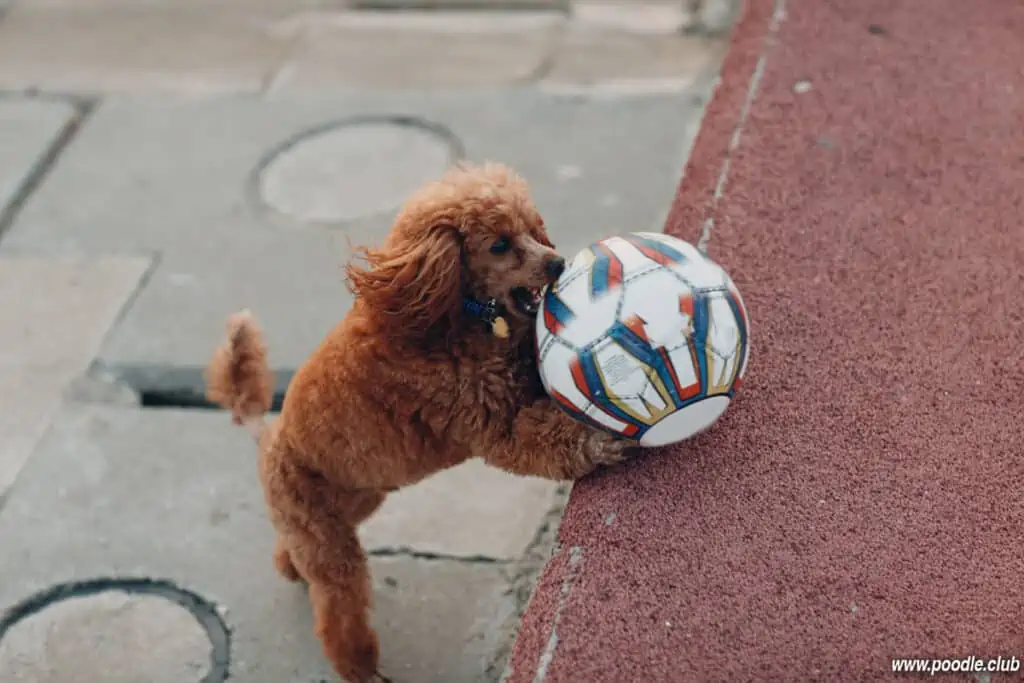
Toy Poodles especially love to learn new tricks and games. Interestingly, Toy Poodles were trained to do tricks in the noble courts of both Queen Anne and Louis XVI.
Similarities of Both Miniature and Toy Poodles
Both Miniature Poodles and Toy Poodles were bred for both performance and companionship.
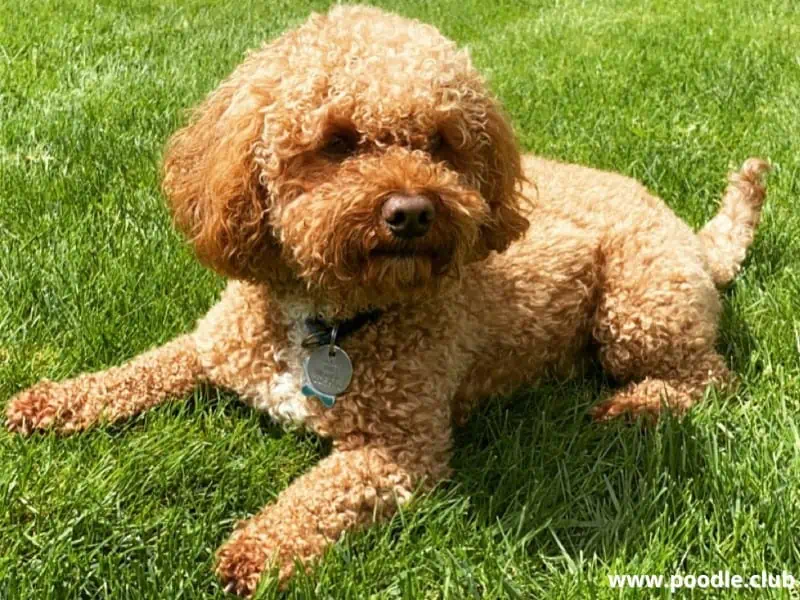
Grooming
Poodles need to be brushed daily unless they have a short trim. Their coats can become matted without daily grooming. So brushing from the skin outward is very important.
If a Poodle’s hair becomes matted, it will have to be cut off.
If you decide to keep a shorter trim, the Poodles’ coat will have to be done every four to six weeks. Some people prefer to take their Poodle to a professional groomer for a bath, hair cut, and to have their nails clipped.
Socialization
Socialization is vital with all Poodles. Poodles can be both high-strung and shy.
They also can bore easily. And they become overly attached to their humans. The breed does not like to be left alone for extended periods.
Socialization can help alleviate these issues.
Poodle Characteristics
Here are some of the traits shared by both Miniature Poodles and Toy Poodles:
- Loving toward family and children, though more training is needed for Toy Poodles around children, so a Miniature Poodle might be best with younger kids
- Very welcoming to strangers
- Extremely playful
- Need a high level of mental stimulation
- Require a lot of play
- Reasonably vigilant as a watchdog
- Frequently barks; without training, the barking can be disruptive
- Reasonably good with other dogs
- Do well in dog parks
Final Word
Other than height, weight, and a few basic needs, Miniature and Toy Poodles are not too different from one another. Both are highly intelligent, great family companions, and aim to please their owners.
If you want to learn more about Poodles, the Poodle Club is a great place to go. It is a non-profit dedicated to caring for the breed. They have information on veterinarians, crating and training, and many other topics.
You can also connect with other people who love Poodles.
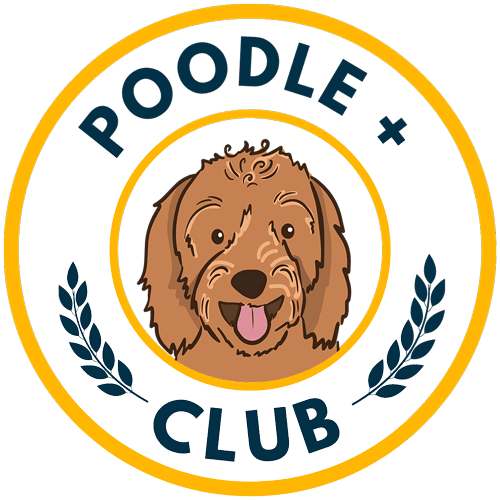

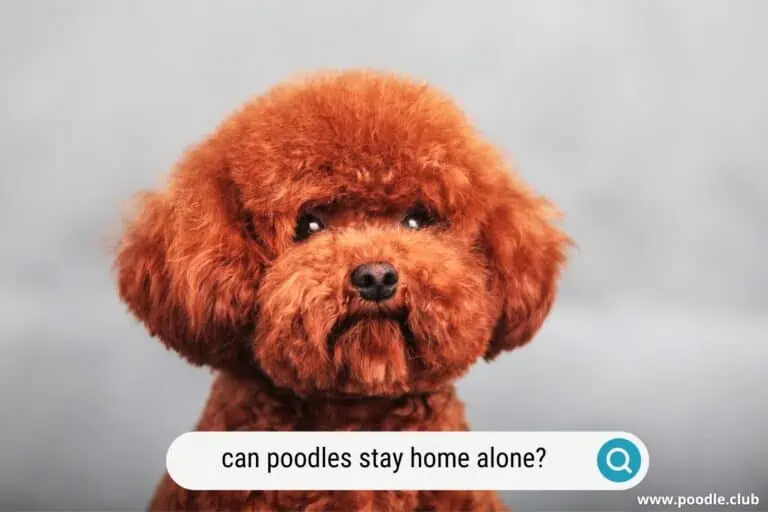
![Why Does My Dog Act Like A Cat? [13 Reasons]](https://poodle.club/wp-content/uploads/2023/03/why-does-my-dog-act-like-a-cat-768x512.webp)
